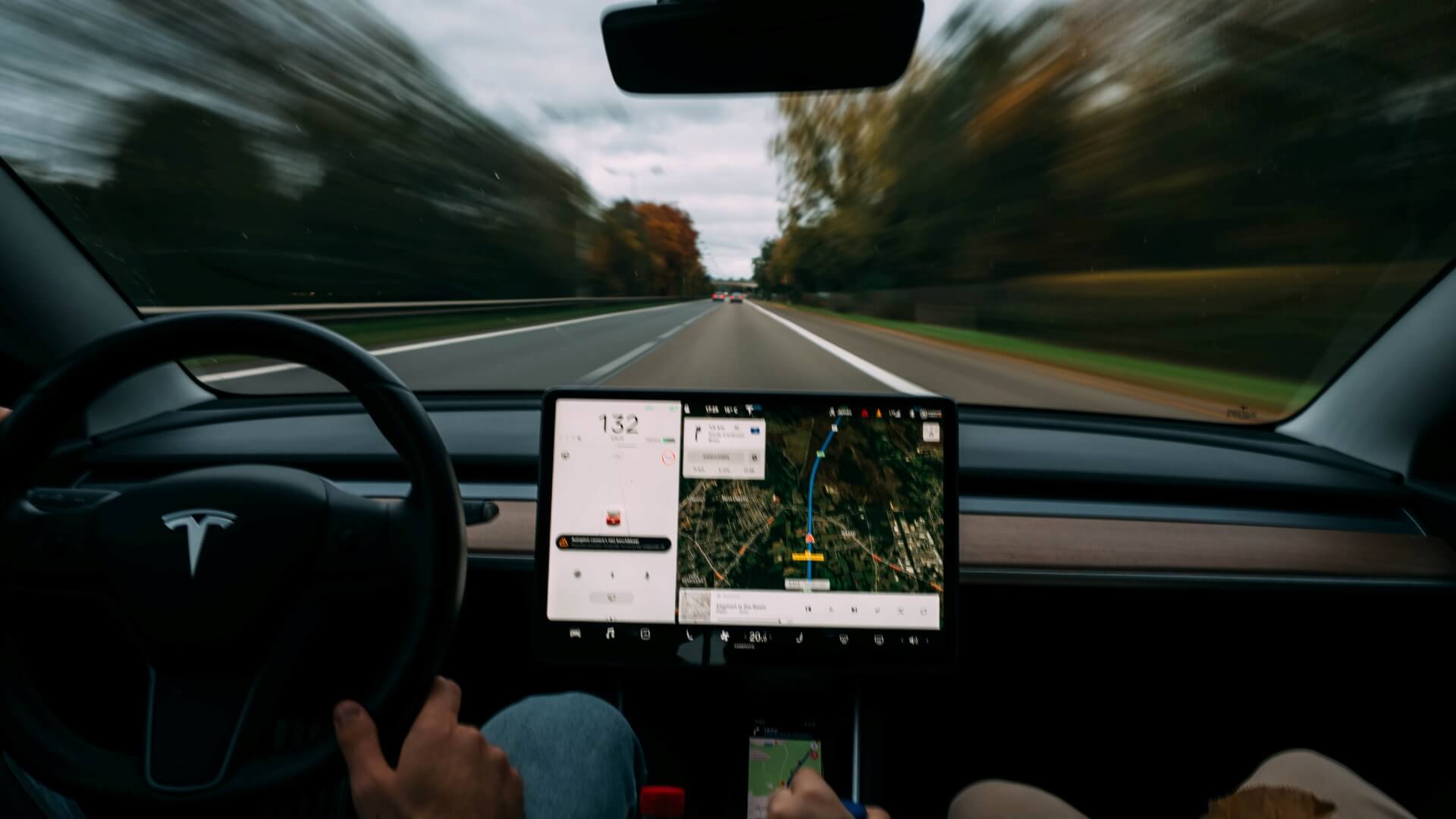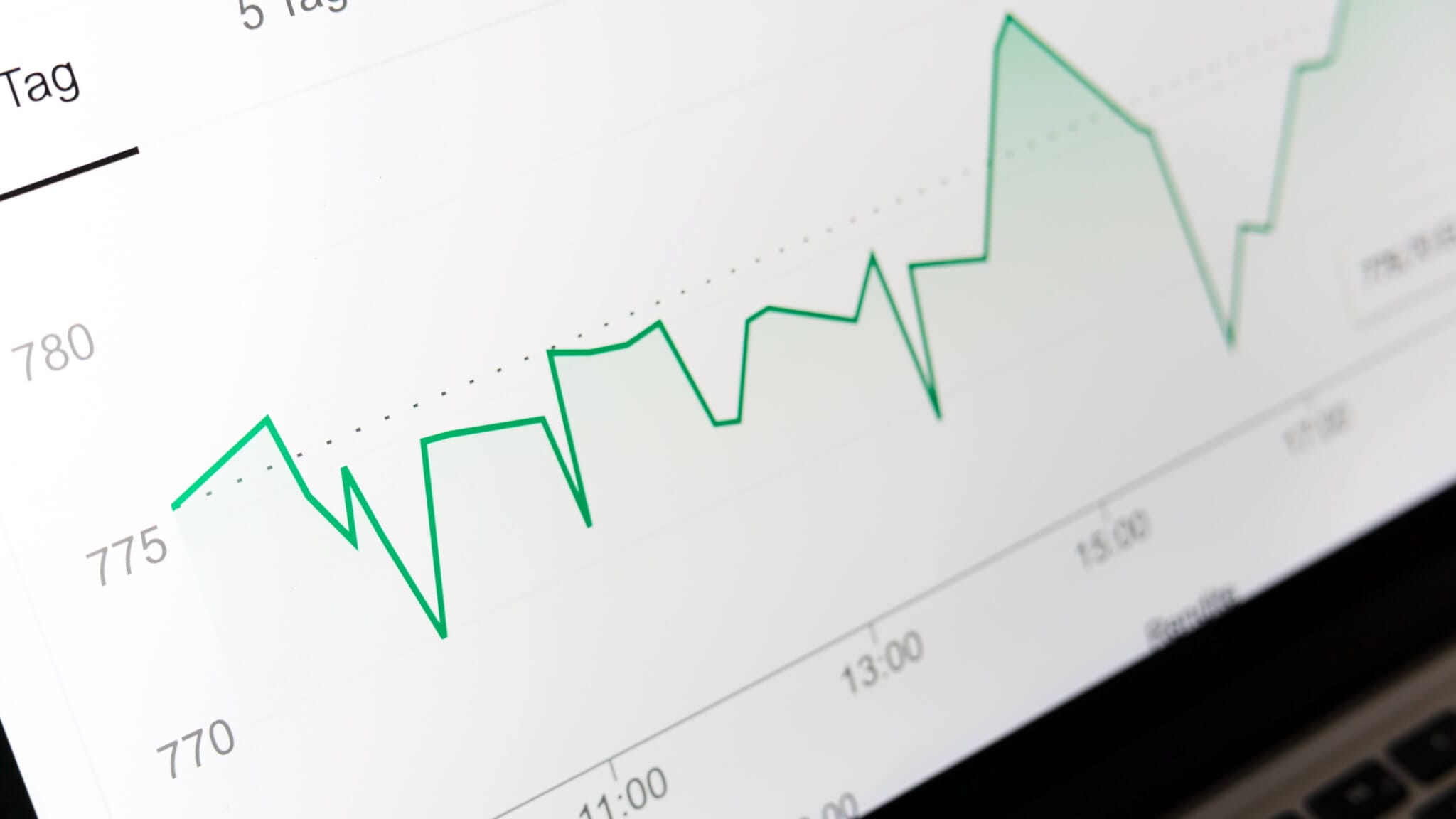The best uses of machine learning in everyday life
-

Kamil Skuza
Reading time: 9 min
 Date: 11 May 2022
Date: 11 May 2022
Machine learning accompanies us every step of the way, although we do not always realise it. It makes our lives easier when shopping, travelling, suggests interesting music and films, and even prevents car accidents, crimes or heart attacks. How? Through data, of course.
Machine learning is an area of artificial intelligence that, through experience (i.e. exposure to data), is able to automatically learn, improve, interpret data and situations more accurately and, as a result, predict the future (of course, we mean predictions from numbers, not fortune-telling or the stars).
1. Traffic
Early collision detection – Tesla cars have built-in cameras to monitor other vehicles, cyclists and road users. Thanks to an on-board computer, artificial intelligence and a permanent connection to the internet (through which they connect to Tesla’s central servers), the car is able to warn the driver of impending danger and even prevent an accident. How?
Several hundred thousand cars of the brand travel a total of several million kilometres every day. Based on the recording and analysis of so many images, the cars ‘know’ that if the vehicle in front of them brakes too frequently and unevenly, for example, or pulls slightly to the side of the road – an accident could occur. Tesla then informs the driver of the danger and either tells the driver to slow down or automatically does so to increase the distance from the vehicle ahead.
This is, of course, thanks to Tesla’s server and self-learning machines, which, based on thousands of recorded footage, are able to predict a dangerous driving situation or accident before it happens.

2. Health
Heart monitoring – this example is the same as the previous one, except that here we do not have a camera, but sensors that collect information about the patient’s heart behaviour (heart rate, etc.). Because the heart monitoring device can communicate with the server of the pharmaceutical company that manufactured it, the patient data (anonymously, of course) is compared with other results from around the world. In this way, the sensors can alert a person in time that his or her heart rate is approaching a dangerous level, after which a stroke, heart attack or simply cardiac arrest, for example, could occur. Such a small device can save lives.
Unusual body behaviour – in fact, some smart sports bands and smart watches work in a similar way, which, by observing abnormal body behaviour (for example, someone has fainted, or has been carried away by an avalanche in the mountains and has travelled several hundred metres in no time), can inform specific people stored in the phone book about the accident or automatically call the 112 / 911 emergency number. One such situation is depicted in Apple’s advertising by telling three stories that really happened.

3. Online shopping
Amazon, Wallmart, BestBuy – virtually every major online shop, auction portal and even price comparison website uses machine learning technology. A huge part of this is played by the famous cookies, which “remember” which pages we have browsed before, which shops we have visited and which products we have looked at the longest. Not to mention what we have simply bought before. Based on such a shopping ‘map’, the algorithms are able to deduce what other things we might need, like, and what we might want to buy. Sections on the site such as ‘customers also bought’, ‘usually bought together’, or ‘see also’ could theoretically be a summary of the shopping baskets of other, previous customers of the shop… but it could also be a tailor-made, 100% made for us, incentive to shop even more, because machine learning can predict (with varying degrees of success) our shopping behaviour and preferences. As you can see, with machine learning in everyday life it is like with a knife – it can be a helpful tool, it can also be a murder weapon. It all depends on us how we use the self-learning function of machines.

We talked about how machine learning can help us on a daily basis when travelling, how it can monitor our health and warn us of danger, and how it cleverly encourages us to be more wasteful when shopping online. Today, we’ll take a closer look at another convenience we use almost every day, although we don’t always realise that behind it analysing data, errors and anomalies – self-learning artificial intelligence.
4. Education
Repetition of material – arguably refreshing the knowledge already acquired gives some students heart palpitations, especially high school graduates. However, it is an unavoidable and necessary part of education. The developers of the language learning application Duolingo have adapted machine learning so that the artificial intelligence learns from the user’s data analysis (answers, mistakes), after what time the learner starts to forget previously acquired knowledge and at what point they should be sent course suggestions to remind them of previous lessons. The result? Naturally, a positive one! After all, consolidating knowledge through repetition yields better results than going through one training or course and starting another. Intelligent learning – training platforms such as Udemy or Coursera, or Amazon AWS knowledge libraries, use machine learning to learn as much as possible about learners in order to understand what level of knowledge they are at. This makes subsequent course proposals more relevant, as they can predict what the learner would still like to learn, what areas they would like to add to their knowledge, or at what point they can suggest deepening material already covered.

5. Network security
Most spam filters, firewalls and malware warnings are based on machine learning. If we receive too many similar messages from almost identical email addresses, before we know it, artificial intelligence will have taken an interest. When we get a nice (sometimes even too direct) message on Instagram containing a strange-looking link – and we report it to support – we can additionally tick the option “Block [username] and new accounts it may create”. This ensures that not only we are immune to incoming spam coming from a particular network address (IP), but also a number of other users, if the algorithm has properly interpreted a larger number of similar reports.
In finance, too, machine learning is upholding the law. PayPal, for example, uses machine learning to prevent money laundering by users, companies and other digital money users. Artificial intelligence monitors and compares the millions of transactions carried out and distinguishes between legal and illegal ones, between buyers and sellers.
 6. Intelligent gaming
6. Intelligent gaming
Garri Kasparov’s duel with the IBM computer and the Deep Blue programme was already groundbreaking and sensational in 1996. And although at that time the chess player lost only one of his six games, a year later he succumbed twice, which is symbolically regarded as the date on which the chess program “defeated man”. In addition, Deep Blue’s computer was able to analyse and learn human behaviour during matches – it took advantage of this by making 7-minute pauses (even that was the length of one computer move) in the game to bewilder its opponent. Today, almost 30 years after the sports-intellectual struggle between humans and artificial intelligence, no one is surprised that advanced algorithms are able to predict an opponent’s next move, and process such information in a split second. In 2015, the DeepMind programme beat a professional player at the ancient Chinese board game Go. However, we are talking about a still limited board with a limited number of moves, and strategy. What if artificial intelligence won against humans in team games, on top of video games? That too, against the odds, is history. In 2019, the OpenAI Five software won against the world champions in the game DOTA 2. The case is all the more interesting because MOBA-type games are, in a nutshell: a huge game board/map, there are more than 100 characters with different skills to choose from, two teams of five people clash in the game, and the strategies for victory are… practically infinite combinations! So how did the artificial intelligence beat a group of professionals? Well, it simply trained for about 45,000 years! Of course, on several computers at the same time, and the matches were played at an accelerated pace, with (one and the same) artificial intelligence, not humans, standing on both sides. What does this give us? Apart from the spectacle that is undoubtedly still the duels between humans and computers, we can learn for ourselves. We can analyse new tactics, avoid defeats, test new combinations, gameplay variants, etc.

7.Business
In business, regardless of the size of the company, machine learning can revolutionise the work of several departments or even the entire company. By analysing an organisation’s data (sales, logistics, finance, marketing, etc.), machine learning can predict e.g:
- how long a particular product will sell, when it is most in demand and when its “pickle season” is,
- how long it will take to fulfil a customer’s order, also taking into account additional factors (season, availability of products and materials, price increases, inflation, logistics),
- what next steps the customer will take on our website and how to help them choose what they are looking for or may need (recommendation engines, chatbots),
- how to avoid financial fraud before it happens; how to avoid customers taking advantage of mistakes in the e-commerce shop to buy products below their market value,
- and more!

Machine learning helps analysts to see areas previously unexplored or overlooked, all on the fly, in real time. And while it is important to remember that artificial intelligence is still learning about, for example, creativity (or how to tell a dog from fast food) and needs human support, it is an invaluable support for any analyst or business user.
For this reason, it is better to start your machine learning adventure with a trusted Partner such as BPX. If you want to see how machine learning can help your business, contact us: bpx@bpx.pl
Find out more about machine learning tools: https://bpxglobal.com/solutions/altair/
Source:
Photos:
https://unsplash.com/photos/X_roZ7toBJY
https://unsplash.com/photos/TDfMJT78J70
https://unsplash.com/photos/rCOWMC8qf8A
https://unsplash.com/photos/N__BnvQ_w18
https://pl.freepik.com/
https://unsplash.com/photos/fZdX9BW8WDs
https://unsplash.com/photos/FWVMhUa_wbY
https://unsplash.com/photos/Q59HmzK38eQ
https://unsplash.com/photos/Mf23RF8xArY
https://unsplash.com/photos/IrRbSND5EUc
Bibliography:
https://insights.daffodilsw.com/blog/9-machine-learning-examples-from-day-to-day-life
https://www.vox.com/2019/4/13/18309418/open-ai-dota-triumph-og
https://www.techtarget.com/searchenterpriseai/feature/10-common-uses-for-machine-learning-applications-in-business
https://blog.duolingo.com/how-machine-learning-helps-duolingo-prioritize-course-improvements
https://www.techlearning.com/news/how-machine-learning-is-having-an-impact-on-education
See recent writings
You drive us to strive for excellence in delivered projects and common challenges. Feel invited to read out blog that provides more in-depth knowledge on our implementations and experience. Read articles about digital business transformation, ERP and Business Intelligence systems. Discover interesting practical applications for future technologies.
-
Blog
Organization and optimization of work in the company – transparent manager cockpits and comprehensive HR process management within the TETA ME application
-
-
-
Contact us!
Let’s talk! Are you interested in our solutions? Our experts are happy to answer all of your questions.
 pl
pl
















